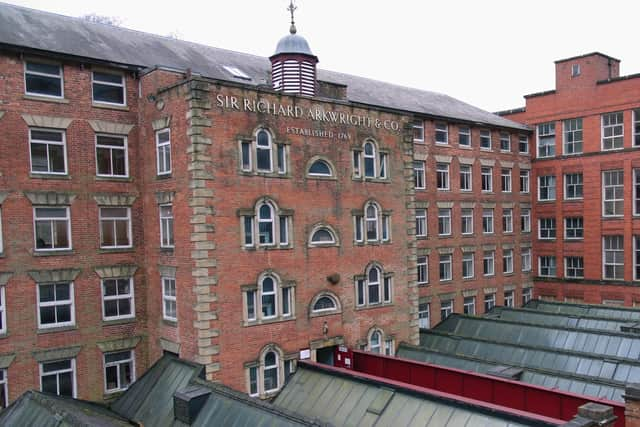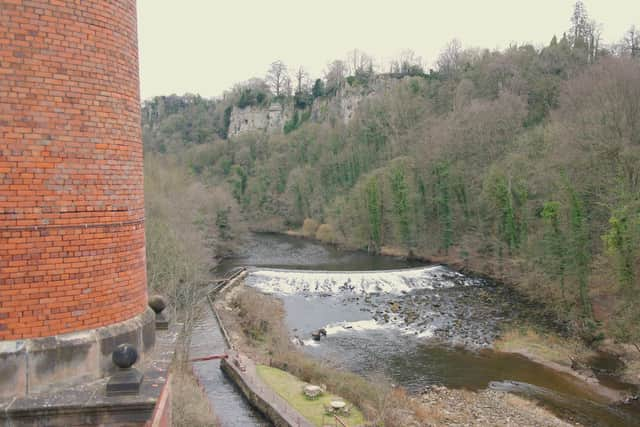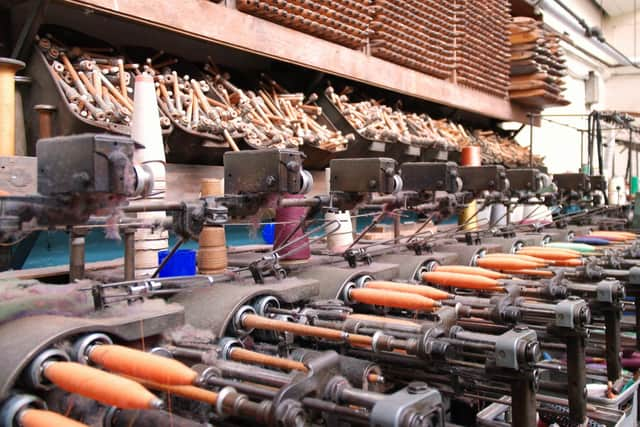Derbyshire company seals takeover of historic cotton mill with plans for new generation of hydropower
and live on Freeview channel 276
Sir Richard Arkwright’s Masson Mills, on Derby Road, is currently used as a working textile and hydropower museum and conference centre, having previously been home to a shopping village which shut at the start of the pandemic.
The site has long been powered by its own hydroelectric turbines, with any surplus fed into the National Grid, and new owners Derwent Hydroelectric Power Limited (DHPL) have spied an opportunity to capitalise on that position with plans to improve its generating capacity and create new visitor facilities
Advertisement
Hide AdAdvertisement
Hide AdJamie Needle, a director of the family business previously based in Belper, said: “Masson Mills has a proud heritage of generating power by harnessing the force of the River Derwent and the museum helps to promote an understanding of the role of clean energy in the past and its potential for the future.


“As well as upgrading the hydropower scheme and preserving this important local heritage site, we hope that by introducing new facilities we can increase public enjoyment and appreciation of the Mill for both visitors to the area and local residents.”
DHPL is a specialist mini-hydro engineering company established in 1988, operating or installing schemes across Derbyshire and others across Britain, and boasting a past-client list including Haddon Estates, the National Trust and numerous local authorities.
The purchase of Masson has been facilitated by a loan from Triodos Bank, which has a reputation as the UK’s foremost investment lender for ethical and sustainable enterprises.
Advertisement
Hide AdAdvertisement
Hide AdThe company has refinanced its Gerlan Hydro Ltd project to complete the acquisition. A one megawatt scheme on the edge of Snowdonia National Park, Gerlan Hydro was constructed by DHPL in 2013 with the backing of a loan from Triodos and consists of two hydropower stations.


Amandine Tetot, head of project finance at the bank, said: “With a combination of renewable energy investment and the preservation and enhancement of industrial and cultural heritage, this project is an ideal fit for our values as a bank.
“The Needle family has demonstrated a deep and long-term commitment to the hydro sector and will use their skills and experience to preserve and breathe new life into this significant industrial heritage site while grounding it further in its community.”
21st century concerns are provoking fresh interest in the renewable energy potential up and down the Derwent Valley, with the Arkwright Society at Cromford Mills also working on their own hydroelectric plans.
Advertisement
Hide AdAdvertisement
Hide AdMasson’s position directly on the river meant Arkwright could harness a power source ten times greater than he enjoyed at his Cromford site when he built the successor to his original water-powered production complex in 1783.


The mill was originally powered by a single waterwheel which, by 1801, had been replaced by two, a system which continued until the first turbines were installed in 1928.
Masson Mills were the oldest continuously working mills in the world at the time production ceased in 1991 – longevity largely attributed to its sustainable power source.
Today it is generally recognised as the finest surviving example, and best preserved, of all Arkwright’s cotton mills.
For more information on DHPL go to www.derwent-hydro.co.uk.